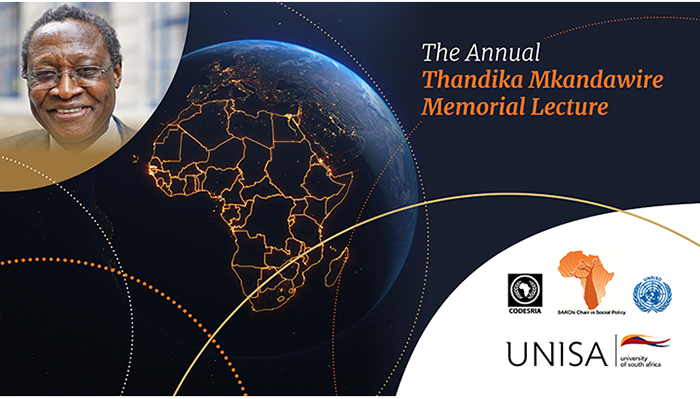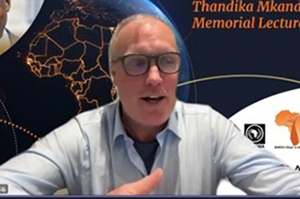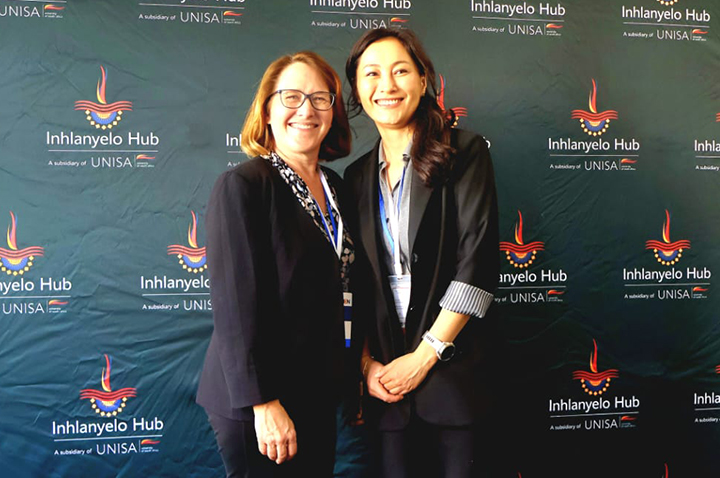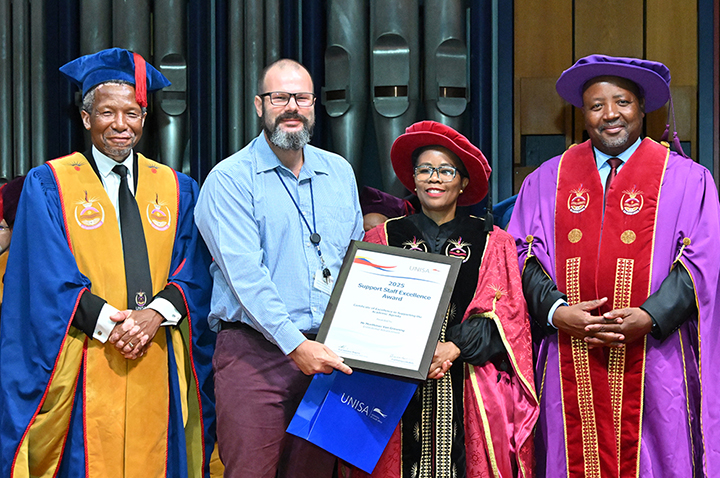

Unisa hosted the 4th Annual Thandika Mkandawire Memorial Lecture on 25 September 2025, honouring the legacy of one of Africa’s most visionary political economists. Prof Mkandawire was remembered not only for his intellectual brilliance, but also for his unwavering commitment to building institutions and advancing progressive development across the Global South.
In her opening remarks, Prof Puleng LenkaBula, Unisa’s Principal and Vice-Chancellor, described Mkandawire as a true African intellectual – a mentor, teacher and institution-builder whose work remains deeply relevant in today’s shifting global landscape. She affirmed that the continuation of this lecture, inaugurated in 2021, reflects Unisa’s enduring commitment to Mkandawire’s vision.
Keynote speaker, Prof Andrew Fischer, challenged prevailing neoliberal narratives that portray the African state as bloated and inefficient. Fischer is a professor of inequality, social protection and development at the International Institute of Social Studies at the Erasmus University Rotterdam, in the Netherlands.

Prof Andrew Fischer
Fischer focused on the critical role of demand in shaping development outcomes. He argued that social policy must be seen not as a peripheral concern, but as a central mechanism for structural transformation. Using Africa’s health workforce crisis as a case in point, which indicates that the continent faces a shortfall of over six million health workers by 2030, Fischer highlighted how constrained demand, driven by austerity and foreign exchange limitations, undermines progress.
Challenging conventional labour market theories, he noted that most workers are forced to increase labour supply as wages fall, simply to survive. "This dynamic," explained Fischer, "reveals the dysfunctional market equilibrium regarding structural inequality."
Additionally, Fischer addressed the importance of public sector employment, often mischaracterised as bloated in African contexts. Drawing comparisons with China and the United States, he demonstrated how public employment stabilises economies, sets wage expectations and serves as a vital poverty-reduction strategy. Fischer also critiqued the "NGO-isation" of development, where resources are absorbed by intermediaries from the Global North, bypassing public institutions and weakening state capacity.
Fischer further called on Africa to rethink redistribution – not just through taxation and spending, but by preventing the loss of value through transnational corporate control. He emphasised: "Redistribution requires trade deficits, enabling countries to consume more than they produce. When profits remain external, foreign direct investment fails to meet this redistributive need."
Fischer echoed Mkandawire’s enduring message that: development is not simply about growth or efficiency, but also about building institutions capable of redistribution, regulation and long-term planning. He concluded: "Public sector employment, far from being a liability, is a strategic asset. It must be defended and reimagined in the pursuit of inclusive and transformative development."
* By Hanli Wolhuter, Communication and Marketing Specialist, College of Graduate Studies
Publish date: 2025-10-22 00:00:00.0
 Unisa roundtable focuses on empowering SA women to lead in innovation
Unisa roundtable focuses on empowering SA women to lead in innovation
 Unisan recognised for web excellence
Unisan recognised for web excellence
 Office of the Dean of Students participates in leadership camp
Office of the Dean of Students participates in leadership camp
 Unisa project fosters digital and pedagogical innovation in Limpopo schools
Unisa project fosters digital and pedagogical innovation in Limpopo schools
 Unisa student wins prestigious national leadership award
Unisa student wins prestigious national leadership award